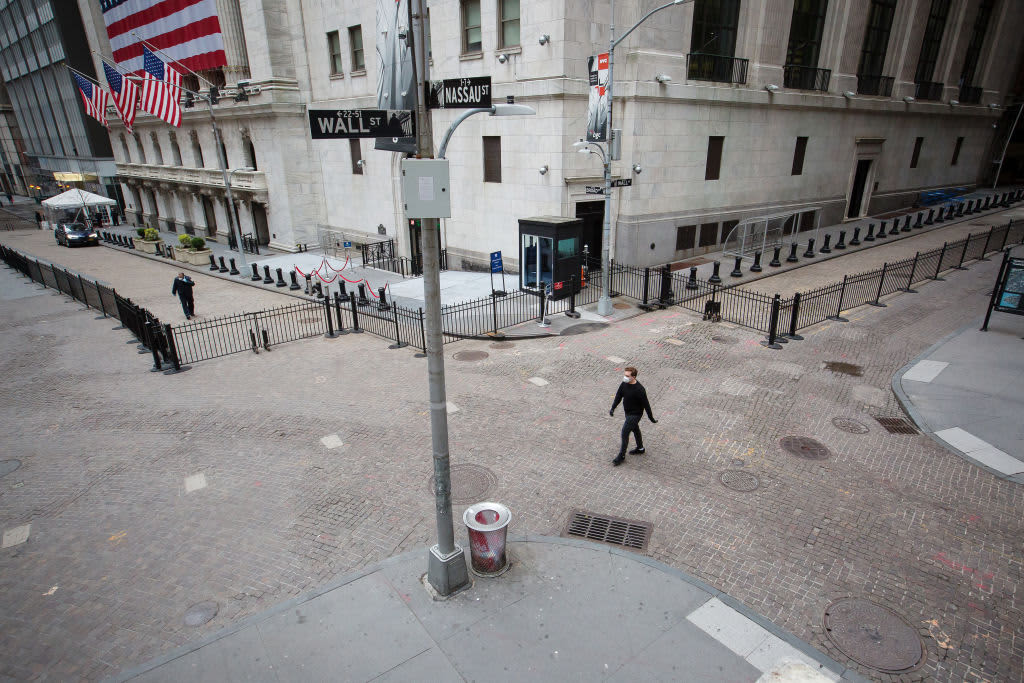A pedestrian wearing a protective mask walks along Wall Street in front of the New York Stock Exchange (NYSE) in New York, U.S. on Monday, March 30, 2020.
Michael Nagle Bloomberg | Getty Images
Oaktree Capital co-chairman Howard Marks is leaning toward a more negative outlook because of the uncertainty from the coronavirus pandemic, but still, he said investors can do some buying as “things have gotten cheap enough.”
Speaking to CNBC on Tuesday night Eastern Time, the billionaire investor said: “I personally think that securities are low enough to buy a little. Somebody said to me, ‘is this the time to buy?’ I say no, ‘this is a time to buy.'”
I never believe that I know when’s the bottom, but I know things have gotten a lot cheaper and it’s reasonable to do some buying. If it goes lower, do more buying.
Howard Marks
Oaktree Capital co-chairman
He urged investors to take a moderate approach in these uncertain times, adding that his approach “is not black or white, buy or sell.”
Markets have been highly volatile since the coronavirus spread globally, with stocks swinging wildly in the past few weeks, leading many investors to question when the bottom will be. The S&P 500, for instance, had several consecutive days in March with daily moves larger than 4%.
On Tuesday, the Dow secured its worst first-quarter performance ever, losing more than 23% of its value in the first three months of 2020. The 30-stock benchmark had its worst quarter since 1987. The S&P 500 fell 20% in the first quarter, its worst first quarter ever and its biggest quarterly loss since 2008. The Nasdaq fell more than 14% in the first quarter.
“I never believe that I know when’s the bottom, but I know things have gotten a lot cheaper and it’s reasonable to do some buying. If it goes lower, do more buying,” Marks told CNBC’s Tanvir Gill. “There’s no argument for spending all your money now, but there’s also no argument for not spending any of your money now. I would do something moderate, in between.”
Oaktree, for instance, has been buying into high-yield bonds in the U.S., as yields jumped from around 3.5% six weeks or two months ago (excluding energy), to around 10% today, Marks said.
Still, Marks cautioned that uncertainty around the coronavirus pandemic remained high, saying he’s “a little more partial to the negative case than the positive” when asked if he was bullish or bearish on the economic outlook.
“I am worried about what we don’t know about the disease and the economic impact … I lean towards the negative and I’m cautious,” he said. “Nobody knows how bad this disease will get, how bad the economic ramifications will be, or whether government programs will save the day. You just can’t have that answer.”
— CNBC’s Maggie Fitzgerald contributed to this report.
